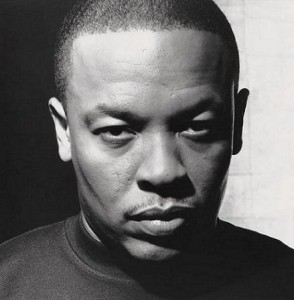 In 1964, Beatles’ drummer Ringo Starr proclaimed, “George Martin has gone deaf in one ear, now he can only work in mono!” So it’s all the more remarkable that Martin went on to become perhaps the most famous producer in history for his work with the Beatles.
In 1964, Beatles’ drummer Ringo Starr proclaimed, “George Martin has gone deaf in one ear, now he can only work in mono!” So it’s all the more remarkable that Martin went on to become perhaps the most famous producer in history for his work with the Beatles.
When the Beatles stopped touring in 1966, part of the reason was to concentrate nearly exclusively on their studio work. They were one of the first bands to essentially use the studio as another instrument; their late 60s albums were some of the most sonically adventurous that had been released at the time. And a huge factor in their new sound was George Martin.
Not one for just turning some knobs behind a tape machine, Martin also acted as an arranger for most of the strings on Beatles songs, and he also played piano or organ on many of their tunes. Martin convinced a reluctant Paul McCartney to add a string part to “Yesterday,” which went on to become the most covered song in history. While acting as an integral element in helping the Beatles redefine what it meant to be a pop band, Martin was also redefining what it meant to be a producer.
Vaguely defined as the overseer of a recording project, the role of a record producer varies from producer to producer and even project to project. In some cases, the producer will just act as an advisor to bands on what songs to record and how to make those songs more apt to bring success, while leaving the technical side of recording to engineers. In some cases, particularly in smaller studios (that the producer owns, in some cases), the producer will do everything from microphone placement and actual recording to finishing the project by mixing and mastering the songs.
Hip hop has also added new layers to how a record producer is defined. Also known as beat makers, these producers fill the traditional role of a producer in the studio while also creating most or all of the instrumental portions of the songs. This can mean programming drum machines, playing synths and sampling, among many other duties. But it’s important to not overlook the fact that, at their core, hip hop producers are still just as concerned with the actual sound of the recording as any other producer.
Dr. Dre is a known perfectionist in the studio, searching to achieve not just the perfect beats, but the perfect sound for every instrument in the mix. Snoop Dogg once commented that when he was recording with Dr. Dre, “[He] made me do each word, word for word, until I got it right…you have to be perfection when you do a record with him, because his sound is right; his direction is right.” Timbaland is also known for his detailed work in using innovative recording techniques, EQ and mixing to get a sound exactly how he wants it.
Though the role of a producer often varies, one thing that’s always certain is how crucial the producer is to making a great record. A good producer can take a mediocre band into a studio and produce an excellent record. History has shown that a good beat and sound made by a producer can make nearly instant hits. It’s the producer that often defines the difference between superstardom and obscurity.

